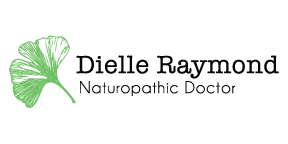|
I love this website! Check out the attached chart.
http://www.informationisbeautiful.net/play/snake-oil-supplements/ However, please don't look at this chart and assume it is the only information I (should) use to decide what to prescribe. I also prescribe based on historical precedent [something has been working for hundreds/thousands of years] and/or clinical results [naturopaths see positive effects, but no one has coughed up the cash for a big research study]. In fact, evidence likes this can often prove just as useful when determining what you might consider NOT taking, such as large doses of calcium to prevent or treat osteoporosis (notice that calcium for this purpose falls below the 'worth it' line for post-menopausal). Ultimately, this is one of the advantages of consulting a naturopathic doctor. We have the training to sift through the vast amount of information out there and make educated prescription recommendations based on solid clinical experience!
0 Comments
Highlights from the attached article (:http://www.examiner.com/holistic-science-spirit-in-national/new-scientific-breakthrough-proves-why-acupuncture-works)
-insertion of acupuncture needles disrupts neurological pathways -acupuncture points show lower electrical resistance than the rest of the skin -the body conducts along the acupuncture channels (meridians) Ultimately, acupuncture works even if we don't understand it, which is why it is slowly being accepted (and adopted) into conventional medicine, like the acupuncture program at McMaster. (http://www.acupuncture-program.com/) We're starting to understand that too many scans and tests can be bad for your health. There are three reasons you may not want to 'catch something early.'
1) the first is because it may never progress to the stage where it would make the you sick, 2) the second is because you might die of something else first (sorry, I know that's morbid), 3) the third is that we don't truly understand the body's capacity to heal itself. Using mammography as an example, the tumor it detects: 1) might not start to grow and spread until you are 110, 2) you might die of a heart attack before it grows and spreads, or 3) the tumor might shrink before it ever grew large enough to be detected during a physical. (By no means am I suggesting that all cancer resolves on its own, I'm simply saying we don't know how frequently that happens.) The danger comes when patients undergo treatment that is harmful and unnecessary. The difficulty is that we aren't allowed to detect tumors and leave them untreated to see what happens because it isn't considered ethical (nobody wants to be the patient who needed treatment and didn't get it). Here's a link to a study about mammographies, in particular. http://www.annals.org/content/156/7/491.abstract And, here's a link that discusses the necessity of all sorts of tests.http://choosingwisely.org/?page_id=13 The most important thing to take away from this post is that testing is not always the best route. Don't immediately assume your medical doctor is being neglectful if he/she decides not to run a test. And, talk to your ND/MD about a serious test, making sure you understand its accuracy, validity, etc. This is an interesting article (put out by the Association of Accredited Natevaluating the differences in the education of MDs and NDs. A lot of people don't know just how much training NDs have!
"When examining a naturopathic medical curriculum, especially in comparison with that of a conventional medical school, remember this important differentiating factor: all future NDs are in training to become primary care physicians. In other words, a naturopathic medicine program is by definition a specialization in primary care – a field of medicine in extreme shortage in the USA today." http://www.aanmc.org/education/comparing-nd-md-curricula.php |
AuthorDr. Dielle Raymond, ND Archives
March 2020
Categories |
This website is intended for educational purposes only. There are no contents on this website that are intended to provide medical advice, diagnosis, or treatment. Copyright ©2023 Dr. Dielle Raymond, ND. All Rights Reserved.

 RSS Feed
RSS Feed